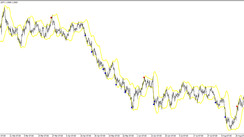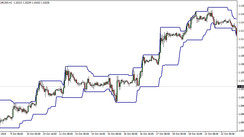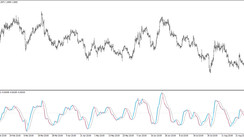Trading psychology is a complex topic for some, and it’s the area where most novice - and even some experienced - traders fail. It’s understandable; after all, you’re risking your hard-earned money in an industry where you could either make or break an investment in the blink of an eye.
However, the risk you run can be vastly affected by how you handle and digest it; a calm mind is one of the best risk management tools.
An overly-stressed trader is a trader that makes mistakes, and a trader that makes mistakes is a trader that loses money, so it’s time to learn how to stay calm while trading.
Emotions Are Part Of Our Evolution
First off, emotions aren’t something we can control and force to obey our will.
That’s because our emotions aren’t really feelings or tied to our psychology in any solid way. Emotions are a natural and physiological response to our environment and an action potential (as its biological definition) that functions to coordinate our organism and our environment.
In other words, emotions are a tool used by our body to promote our response to the changes that occur around us.
They give us clues regarding how to react and what to do in certain situations. For example, fear makes us uncomfortable and avoid potentially dangerous scenarios.
Emotions And The Trader’s Mind
Our brain interprets trading in the same way it does other things: you’re still facing risks that can (but should never, if you’re investing correctly) alter the life you have.
Every time you leave a trade earlier before realising that there was still a lot of fuel in the trend, it’s your emotions attacking you. Essentially, your fear makes you take what you have already earned and run before you lose it.
On the other hand, you may experience euphoria when having winning streaks and thus keep risking more and more.
In both instances, emotions cloud your judgment and ability to rationalise. That’s why it’s important to know how to handle them.
What Makes Emotions?
a) Arousal
This is when your heart speeds up and your muscles tense. Once you identify this stage, you can engage in relaxation techniques to interrupt it and prevent it from controlling you.
b) Motivation
You feel the need to do what the emotions tell you: flee, attack, or keep going.
c) Belief
You start to believe you can achieve what your emotions entice you to do.
d) Temperament
This is merely your mood. It doesn’t really affect your judgement like the others.
Understand And Handle
Staying calm while trading is easy once you understand how your emotions work and the responses they elicit from your system.
Once you recognise each stage and what causes each emotion, you can take the appropriate measures to stop them from controlling you.
Relaxation techniques like relaxing your muscles and breathing are excellent when faced with the first stage of an emotion, but once they escalate, you’re better off drinking some tea or taking a break from trading.





